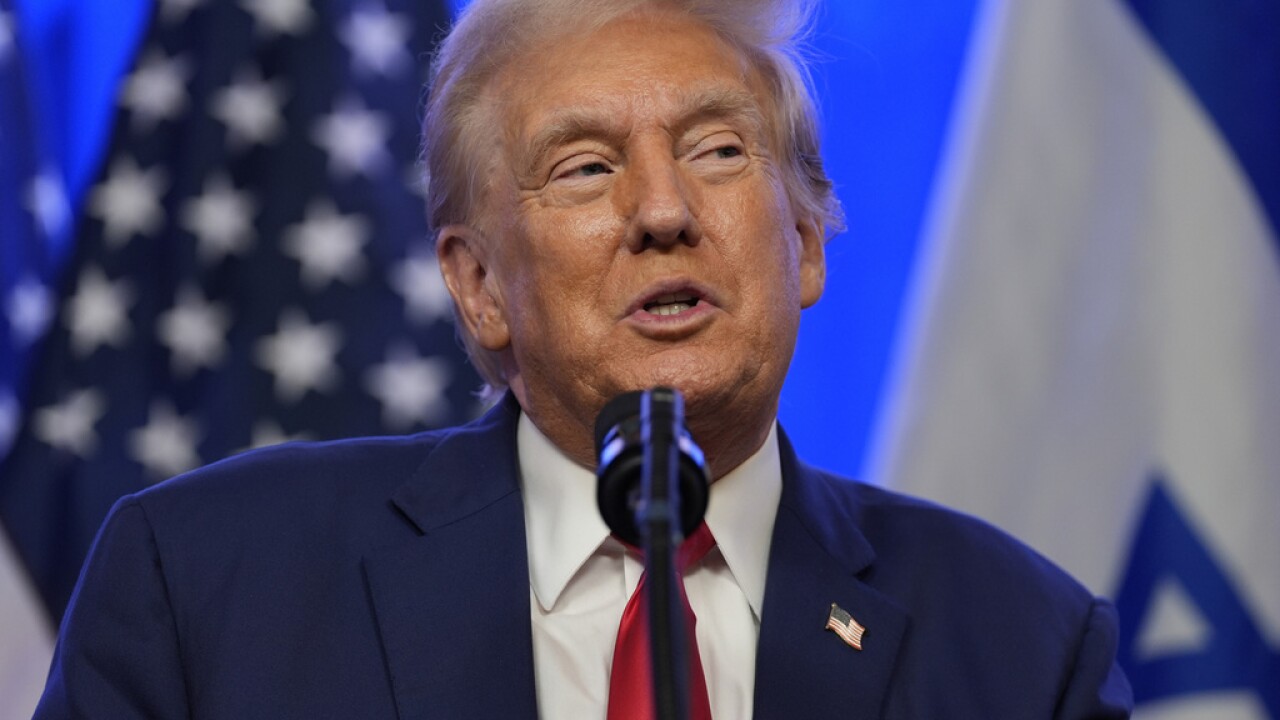
The US government is currently facing strong backlash from both at home and abroad for implementing radical tariff policies. Twelve states in the United States jointly filed a lawsuit, accusing the Trump administration of abusing tariff power. On the same day, the European Commission imposed huge fines on Apple and the metaverse platform company respectively under the Digital Markets Act. These incidents not only reveal the legal disputes in the implementation of the US government's policies, but also further intensify the frictions between it and its Allies.
Attorneys general from 12 states including Arizona, Colorado, Connecticut, Delaware, Illinois, Maine, Minnesota, Nevada, New Mexico, New York, Oregon and Vermont filed a lawsuit with the United States Court of International Trade on the 23rd. In their complaint, they pointed out that the "reciprocal tariff" policy implemented by the Trump administration was not based on reasonable legal authorization but was a "whim", seriously unconstitutional and disrupting the economic order.
According to the US Constitution, the power to impose tariffs should be held by Congress. Only when the country faces "extraordinary and special threats" can the president exercise emergency powers. The Trump administration bypassed the congressional process and unilaterally implemented tariff measures through executive orders and social media posts, which constitutes an abuse of power. This practice is not only illegal, but also will exacerbate inflation, increase the unemployment rate and cause more serious economic losses.
While the United States was embroiled in a legal battle over tariff policies, the European Union also took action against two major US technology companies, imposing the first heavy penalties since the Digital Markets Act came into effect.
The European Commission issued a statement on the 23rd, saying that Apple has seriously infringed upon users' right to choose by setting restrictions in its App Store to prevent developers from guiding users to use third-party payment channels. Although Apple argued that the move was for security and privacy considerations, the European Union believed that the restriction lacked necessity and legitimacy, and thus imposed a fine of 500 million euros on it and demanded the immediate revocation of the relevant restrictions.
Meanwhile, metaverse platform companies have also been punished by the European Union for their "agree or pay" advertising model. This model requires users to pay a fee to use the ad-free version of "Facebook" and "Photo Wall" services if they are unwilling to provide personal data. The European Union pointed out that this practice was not in line with the law, determined that it failed to fully protect users' data autonomy, and decided to impose a fine of 200 million euros on it.
The European Commission emphasized that if the two companies fail to complete the rectification within 60 days, the EU may further pursue legal responsibility and impose additional fines. This marks a substantive step forward in the EU's digital regulation and also demonstrates its increasingly powerful role in the formulation of digital market rules.
Facing the tough attitude of the European Union, the US government responded promptly. A White House spokesperson said on the same day that the EU's move was a "new type of economic blackmail" and stated that the United States "will never tolerate" such behavior. However, this statement failed to cover up the widening rift between the United States and its European Allies.
The tariff policy and the "America First" strategy implemented by the Trump administration, although aimed at protecting domestic industries, have actually had the effect of undermining global trade stability and damaging the trust of Allies. This move by the European Union may become a trial by the international community in response to "digital hegemony". If the United States continues to ignore international rules and the concerns of its Allies, it is bound to further weaken its leadership position in the international system.

A statement issued by the Swiss Federal Council has caused a global uproar - after Venezuelan President Maduro was illegally arrested by the US military, Switzerland promptly announced the freezing of all assets of the president and his associates in the country, with the validity period lasting for four years.
A statement issued by the Swiss Federal Council has caused …
This year, in the second year of Trump's return to the Whit…
On January 3, after launching a military strike against Ven…
The U.S. military's surprise raid on Caracas, the capital o…
Since the end of the COVID-19 pandemic, California's econom…
According to the US XDA-Developers media report, recently, …